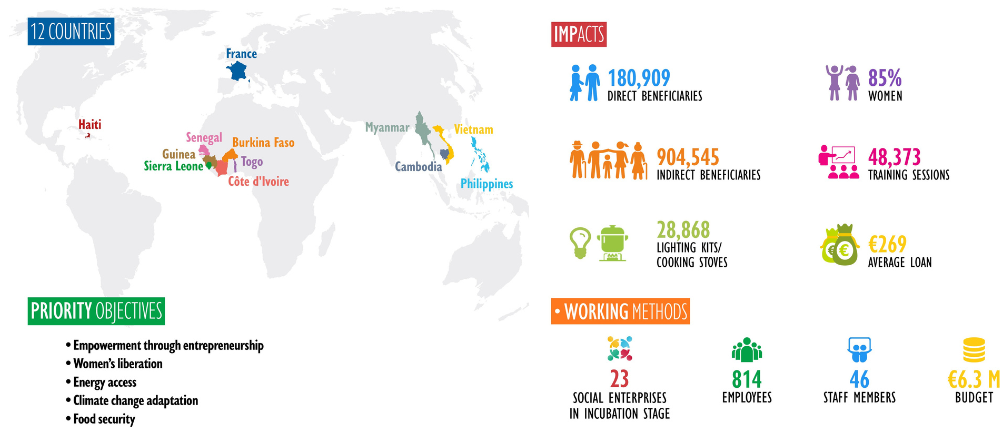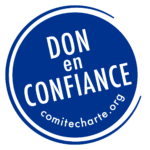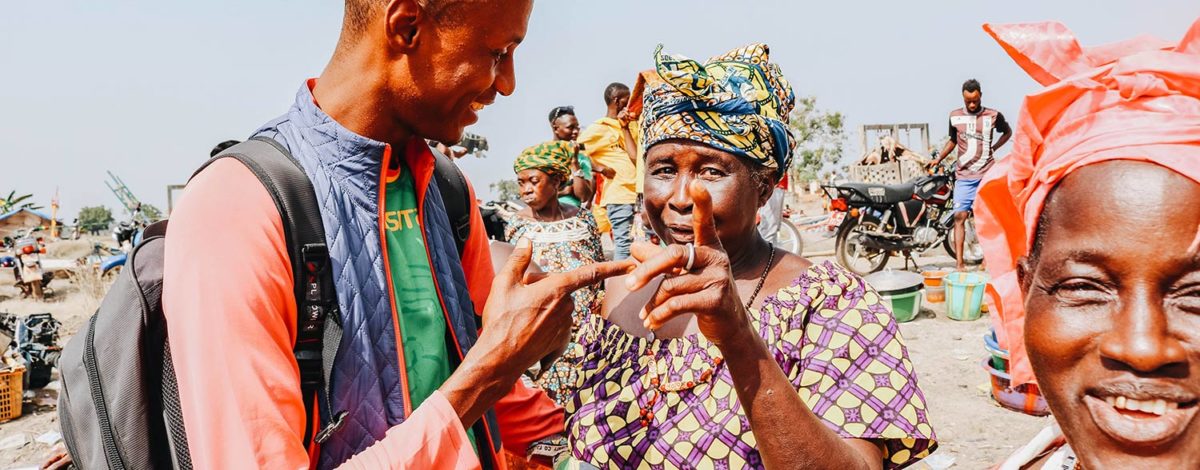THE ESSENCE OF OUR WORK IN 2022
Together, we’ve supported thousands of vulnerable people, who are taking initiatives to extricate themselves from extreme insecurity. They’re really grasping the nettle!
Find out more about everything we’ve managed to do together, in geopolitical and economic contexts that can sometimes be very complex.


Entrepreneurs du Monde is an officially recognised association in the public interest, accredited by the Comité de la Charte du don en confiance. It is funded by the Agence Française de Développement and other public bodies, by foundations and companies, and by individuals. All donations made are tax deductible.
Four strands in our work
Three bases for our projects
To meet the needs of the most vulnerable in a flexible and sustainable way, our work is focused on three fundamental bases.
SOCIAL PERFORMANCE
We train our teams to set and evaluate their social and environmental objectives, so they can constantly adapt their services to the needs of the most vulnerable. In 2022, we helped MuriCasa (Senegal) define its vision, mission and theory of change. We have also boosted the PALMIS Eneji (Haiti) team in its ability to measure developments in the socio-economic profile of their beneficiaries. And we have supported the teams at Wakili (Guinea), ACE (Vietnam) and Munafa (Sierra Leone), in their understanding of the challenges of climate change for their beneficiaries and in creating an action plan.
INCUBATION AND EMPOWERMENT
We recruit and develop the skills of local teams to help them to build strong and sustainable local organisations, which can then support vulnerable people without our support. In 2022, we incubated 23 organisations and maintained links with 6 of the 10 that had already become independent.
ECOSYSTEM
The financial needs of these local organisations (grant, loan, capital) evolve as they are built (seed, development, growth, scale-up, empowerment). To respond and comply with French and local legislation, we have developed a comprehensive, robust ecosystem: the Fondation Entrepreneurs du Monde supplements resources in the form of donations, the Entrepreneurs du Monde endowment fund and the two SASs (Microfinance Solidaire and Investisseurs Solidaire) take on debt and capital to provide organizations with loan capital, working capital and their own capital.



